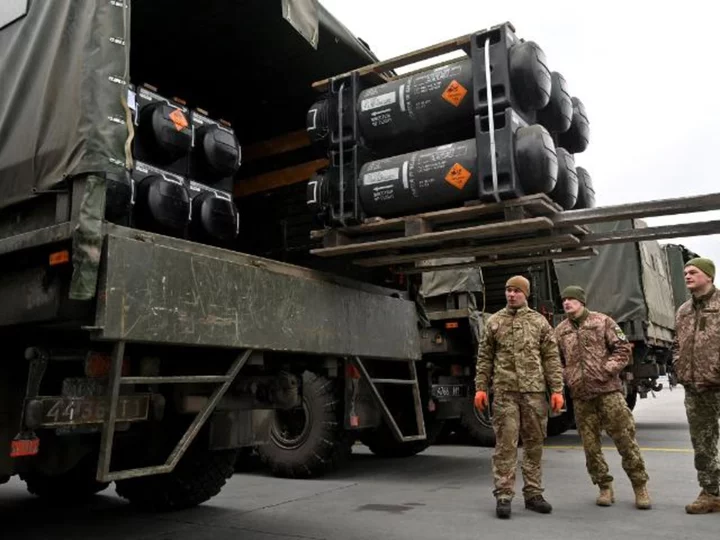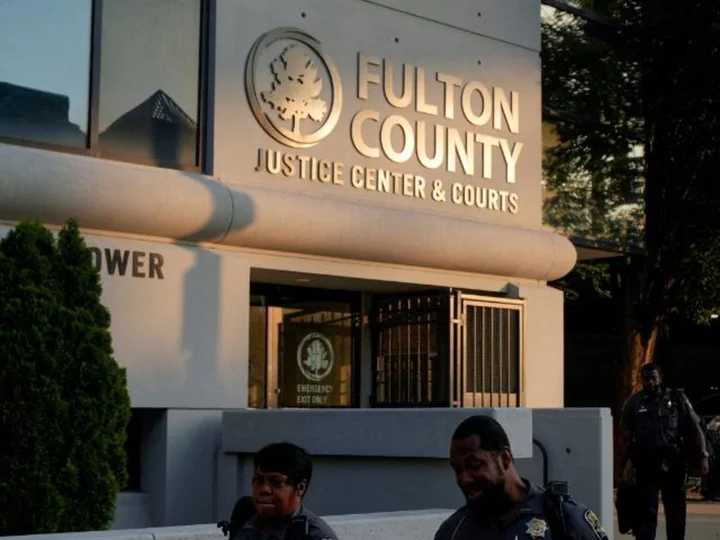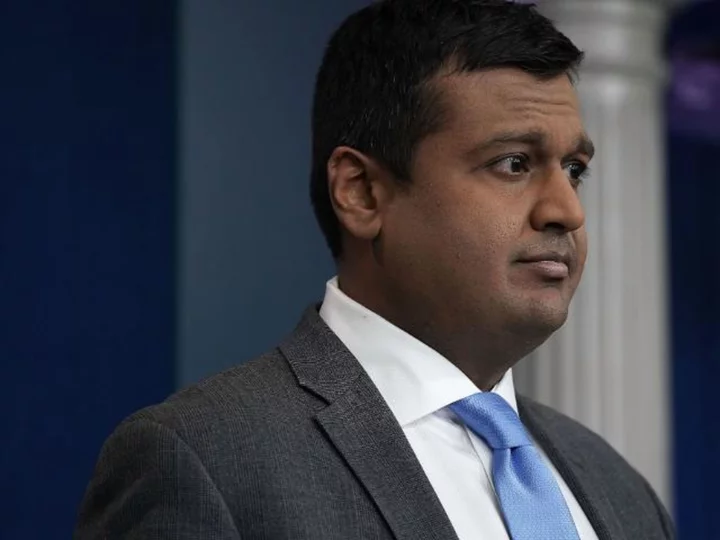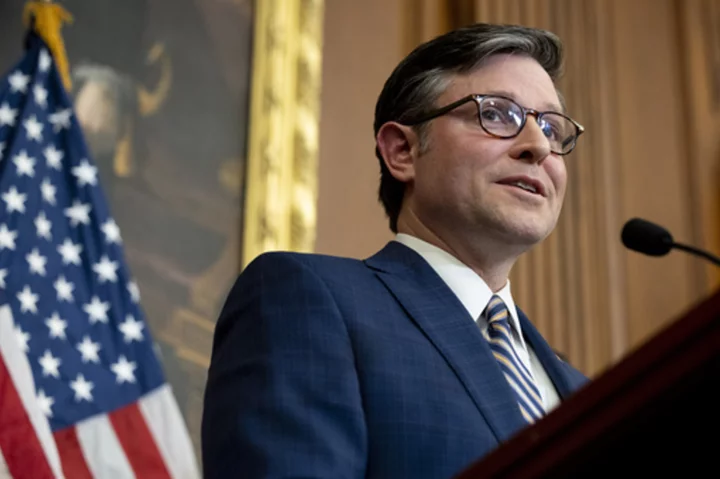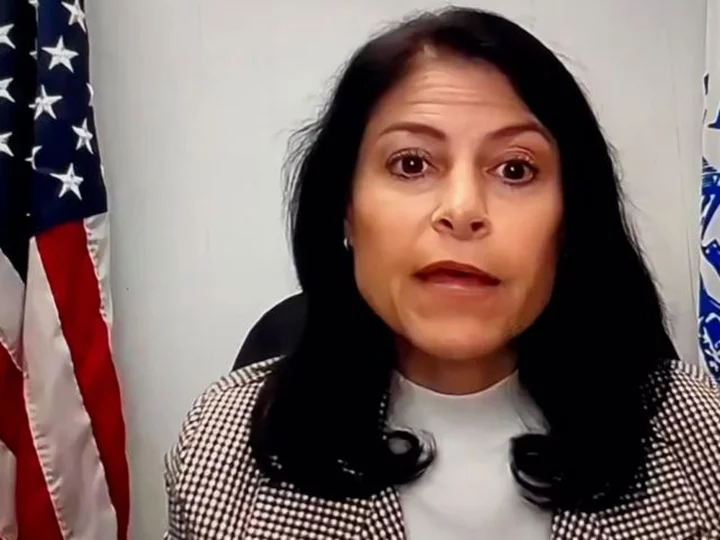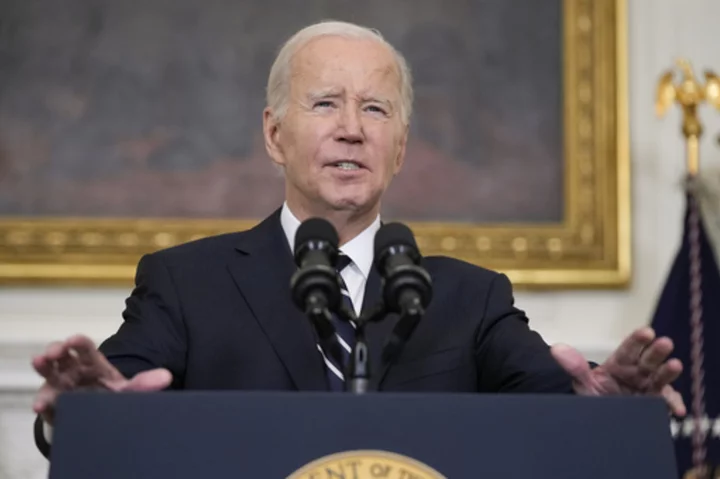Ukraine backers on Capitol Hill are itching for President Joe Biden to step up his case for why the US should send more money to Ukraine in its fight against Russia, as warning bells sound about the American public's support for Kyiv.
White House officials are confident the $24 billion in supplemental funding for Ukraine the president requested Thursday will ultimately get the congressional backing it needs to make it to his desk, and administration officials say they have no plans to change their message about the urgency of fighting Russian aggression against its neighbor.
But a major concern among Ukraine supporters in Congress this summer is what precarious position they might be in down the road -- especially if public support falters heading into a bigger showdown over funding that could play out before year's end.
Some of the strongest defenders of Ukraine aid on Capitol Hill have been making the case to the White House publicly and privately that they need to do more to explain the strategic benefits of sending US money abroad. Among them is Republican Majority Leader Mitch McConnell, who has gone out of his way to try and tamp down concern abroad that Republicans are losing interest in backing the effort.
Even Republican leaders in the Senate had hoped Biden would do more to sell the importance of US assistance.
"He needs to be more vocal on why it's needed," another GOP member said. "I don't think [it's] too hard a sell knowing the Russians are committing war crimes and that they are a threat to our allies."
A slip in public support could have the biggest impact in the GOP-controlled House of Representatives where, in July, 70 Republicans voted for an amendment that would have stripped all US military aid to Ukraine.
While there are still enough votes between Republicans and Democrats to pass additional funding, it will be up to House Speaker Kevin McCarthy to decide whether to put the bill on the floor. Doing so could cost him politically with his right flank. Any supplemental requests might have to pair with strong protections against waste, fraud or abuse.
"Americans want to know that their money is being well and effectively spent and want to be reminded why containing Russia doesn't just benefit Ukraine, but us," said a GOP aide familiar with the discussions.
The debate is growing hotter this summer as the conflict stretches into its 18th month with no sign of a major breakthrough. The race for weapons, ammunition and other tactical advantages is ramping up the pressure on the West to help Ukraine, but it coincides with a shakiness in American support for the cause.
While most Americans have favored backing Ukraine over the last year and a half, CNN's recent poll shows 55% of Americans say Congress should not authorize additional funding to support Ukraine in the war with Russia. The poll released this month found the broadest public opposition among Republicans, with 71% saying Congress should not authorize new funding.
For their part, administration officials point out that polls other than the recent CNN one show that support for the war effort does remains largely intact. They have no plans to change their approach and believe it has rallied the American people so far.
It's important to the "national security of the American people" to continue US support for Ukraine, John Kirby, Biden's national security council coordinator for strategic communications, argued this week.
"If some Americans don't feel that or sense that," he said, "I think it's important to remember that if we just sit back and we let (Russian President Vladimir) Putin win, we let him take Ukraine, where does it stop next?"
In his July speech at the NATO summit, Biden highlighted Russian atrocities in Ukraine and pressed the need to defend Ukraine's territorial sovereignty for "as long as it takes."
Since then, however, Biden has focused heavily on the economy, working to sell his domestic record around the country. While Biden regularly discusses the importance of supporting Ukraine in off-camera fundraisers, he doesn't make it a regular part of his public speeches. Aides believe the economy and domestic issues will be drivers in next year's election, not foreign policy.
Privately, GOP aides say members have tried to impress upon the administration that they need to be clearer with Americans that the money is strategically beneficial.
"It can't just be Putin is bad. ... What is the strategy to win other than keep writing a check?" one GOP aide lamented. "There is no end game or strategy."
The problem is that Biden is not making the case "in a way that regular Americans can relate to," another Republican congressional aide told CNN.
"He does not talk enough about how supporting Ukraine is necessary to deter China from invading Taiwan, or about how the US is degrading a major US adversary without even putting American lives at stake," that aide said.
Some Republican Ukraine supporters say this is a unique case where they want Biden to succeed in rallying the American people.
"This is one of those rare issue sets where Republicans want Biden to effectively sell something the American people," said a second Republican congressional aide. "It will help us we look ahead to future funding packages for Ukraine. And Biden is not doing that well."
Bill Taylor, a former US ambassador to Ukraine, thinks the solution is for Biden to keep talking about Ukraine in public over and over again and not just as a "throw-away line at a campaign rally."
Biden should also broaden the argument beyond the need to maintain the rules-based international order, Taylor went on. For example, he said, "Ukrainians are defending the US against Russia, and it is costing us less than 6% of our defense budget for the Ukrainian army to decimate the Russian army with no US soldiers on the ground."
Administration officials acknowledge that relatively slow gains by the Ukrainians in recent months have made it more difficult to rally Americans behind the cause compared to earlier in the war, when Ukraine's surprising resistance against Russian forces inspired global awe.
But Biden officials also say they take the long view.
"I will note that it is always dangerous to look at any one poll because they are snapshots in time and you can see other ones," State Department spokesperson Matt Miller said. "I will say that we have been heartened by the support from the American people and the support, the bipartisan support we've seen in Congress for further assistance to aid Ukraine in defending its people from Russian aggression."

